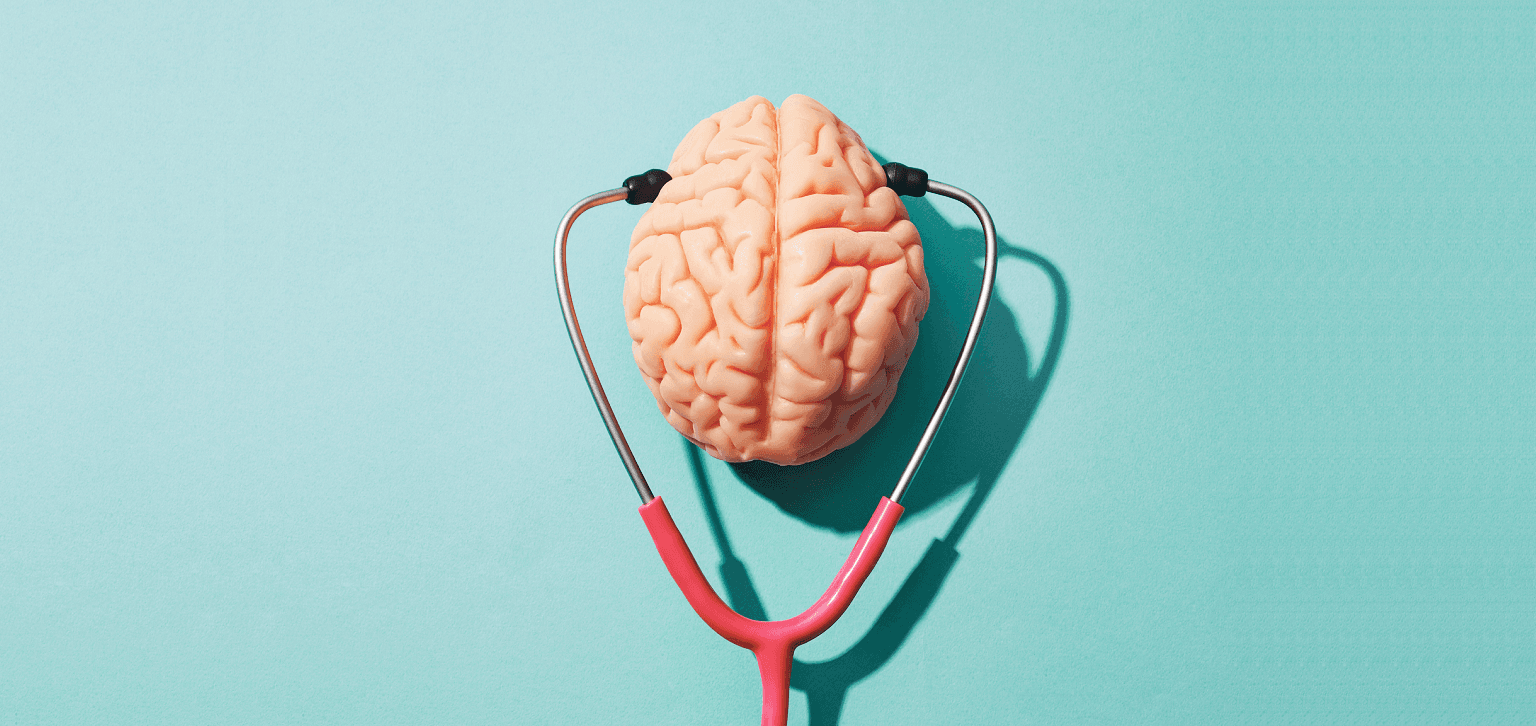
Have you found yourself spending more time on the internet over these past couple of years? If you’re one on the nearly 75% of older adults now on the web1 (and assuming that you are, since you’re reading this article), you may have been reading online content with much greater frequency since the start of the COVID-19 pandemic.
With the constraints of lockdowns and social isolation since 2020, more and more older adults have turned to the internet for various reasons, like staying connected with family and friends or reading and learning new information. Some have even begun to use the internet to look up information specifically about mental health. In fact, some research suggests that a majority of older adults now gather all types of health information on the web, and it’s the second most widely used source aside from direct conversations with doctors.2
How can I sift through so much online information?
Many older adults have a new, or renewed, interest in learning how to use the web. Nearly three-quarters of older adults say they lack confidence when using technology, including the internet.3 And indeed, past research has pointed to a “digital divide,” noting that older adults are at greater risk for gathering incorrect information online.4,5
Although finding accurate physical and mental health information online may sound simple, a basic Google search can yield thousands of entries, often with conflicting or outdated information. Indeed, compared to more traditional sources, like newspapers or television, online media is often less scrutinized yet easier to access,6 which makes the spread of misinformation more common. It takes caution and care to assess whether online health information is credible.
When surfing the web for mental health information, be sure to ask:
- Who is the author?
- How old is this content?
- Is someone sponsoring this information/trying to get me to buy a product or service?
- Does this sound too good to be true (like a 'miracle cure')?
- Who is hosting this information online?
Searching for mental health information: Who is the author?
It’s always important to know who has written the article you’re reading. The author (or authors) should be easy to identify, and you should be able to see their credentials and who they work for.
Some authors will list their credential, which signals they have some advance training in the field, such as LCSW (Licensed Clinical Social Worker), LCPC (Licensed Clinical Professional Counselor), PhD, PsyD, and MD. A degree means the person has some additional training, but make sure they have expertise on the article topic if they also provide a biography. People with advanced degrees or affiliations to respectable organizations (such as hospitals or universities or governmental agencies) often provide some of the most helpful information.
Online mental health information: How old is it?
Knowledge is constantly changing, sometimes updated, rewritten, or even erased within days. For example, many years ago most people believed memory loss was an inevitable consequence of aging. Today, we know that’s not the case, and in fact, only a small number of older adults develop a type of dementia like Alzheimer’s disease.
As an informed consumer of online health information, make sure what you’re reading is up to date. Credible internet resources list the date when an article was published or last updated right near the title of the article. As a rule of thumb, seek out information that has been updated at least within the past two years.
Is this online mental health information sponsored by a company?
Does the writer have a potential conflict of interest? Are they endorsing a product or trying to sell you a service? Beware of articles that make claims about health and supplemental nutrition products that have not been endorsed by the U.S. Food and Drug Administration (FDA). Ask your pharmacist or your primary care physician when considering starting a new supplement or medication.
Does the mental health information you found online sound too good to be true?
Have the authors uncovered the Fountain of Youth, or maybe even found ways to “stop” or “reverse” aging, memory loss, or even Alzheimer disease? If so, chances are, the information you’re reading is misleading or inaccurate. Can you find similar claims on other websites, backed up by good research? Does your pharmacist or primary care physician agree with the claims?
What kind of website is hosting the mental health information?
Check the last three letters of the address of the web page you’re on. The most common addresses end with .com, .org, .gov, and .edu. Here’s what they mean:
Websites ending in .com are commercial websites. These are often run by business and companies looking sell you something and make a profit. There are certainly many commercial websites that can be trusted, but you’ll want to be mindful when visiting them.
Some helpful commercial websites specifically focused on mental health include psychologytoday.com and verywellmind.com.
Websites ending in .org are primarily run by nonprofit companies like charities and educational organizations. These organizations often provide information or a service without the intention of making a profit from consumers. Despite this, these, too, sometimes try to push an agenda or narrative. You’ll again want to be mindful when on them and try to learn more about the organization.
Some useful and trustworthy organizational websites for mental health information include those from the National Alliance on Mental Illness and Mental Health America. Websites run by the American Psychological Association and the MayoClinic have plentiful resources.
Websites ending in .gov are run by governmental entities. These websites contain some of the most accurate and unbiased information you will find online.
Some of the best resources for mental health include mentalhealth.gov and those from the National Institute of Mental Health. And for more information about social media and apps for health information and further tips, check out this National Institute on Aging page.
Websites ending in .edu are run by educational institutions. They contain a great deal of unbiased information and tend to be credible and up-to-date.
Check out these websites provided by Harvard University and Johns Hopkins University for some great information.
Be sure to pay attention when you’re gathering your mental health information. The internet can be a valuable resource, but be a savvy scholar when doing you research!
NCOA hosts the annual Older Adult Mental Health Awareness Day to highlight critical issues in addressing mental health needs as we age. We hope you'll attend to hear stories from others or find resources to help manage (and normalize talking about) your mental health.
This article is supported by the Administration for Community Living (ACL), U.S. Department of Health and Human Services (HHS) as part of a financial assistance award totaling $5 million with 100% funding by ACL/HHS. The contents are those of the author(s) and do not necessarily represent the official views of, nor an endorsement, by ACL/HHS, or the U.S. Government.
Sources
1. Share of those 65 and older who are tech users has grown in past decade. Pew Research Center (2022). Found on the internet at https://www.pewresearch.org/fact-tank/2022/01/13/share-of-those-65-and-older-who-are-tech-users-has-grown-in-the-past-decade/
2. Hall, A. K., Bernhardt, J. M., & Dodd, V. (2015). Older adults’ use of online and offline sources of health information and constructs of reliance and self-efficacy for medical decision making. Journal of Health Communication, 20(7), 751-758. Found on the internet at https://doi.org/10.1080/10810730.2015.1018603
3. Kakulla, B. Personal tech and the pandemic: Older adults are upgrading for a better online experience. AARP. Found on the internet at https://www.aarp.org/research/topics/technology/info-2021/2021-technology-trends-older-americans.html
4. Hargittai, E., & Dobransky, K. (2017). Old dogs, new clicks: Digital inequality in skills and uses among older adults. Canadian Journal of Communication, 42(2). Found on the internet at http://doi.org/10.22230/cjc.2017v42n2a3176
5. Neter, E., & Brainin, E. (2012). eHealth literacy: Extending the digital divide to the realm of health information. Journal of Medical Internet Research, 14(1), e1619. Found on the internet at https://doi.org/10.2196/jmir.1619
6. Ali, S., Khalid, A., & Zahid, E. (2021). Is COVID-19 immune to misinformation? A brief overview.Asian Bioethics Review, 13(2), 255-277. Found on the internet at https://doi.org/10.1007/s41649-020-00155-x


